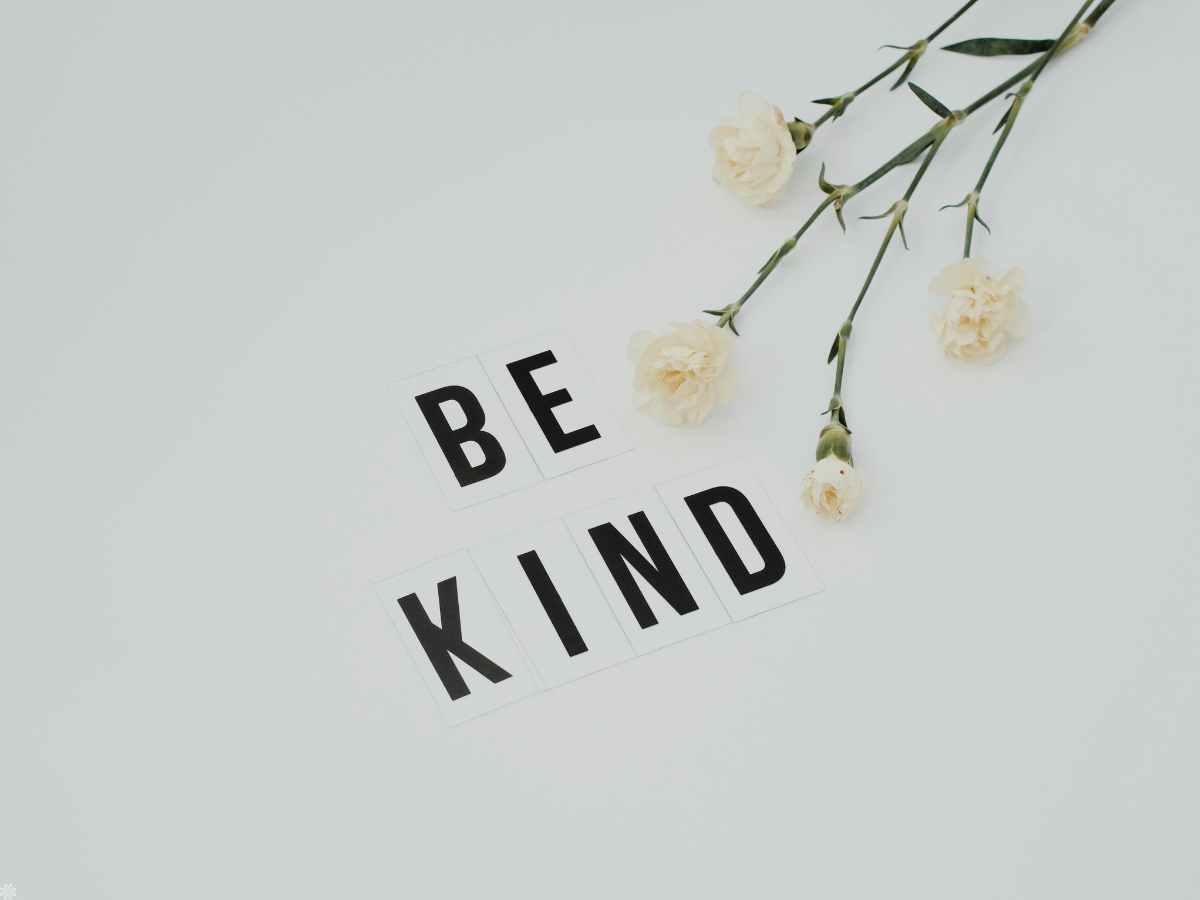In this fast-running world, we are glued to screens and racing deadlines, pausing for just five minutes to help someone feel like pressing a magic button, small effort, big impact. These small acts of generosity can not only brighten someone’s day but also create a strong and meaningful bond in our personal and professional lives. This concept of the 5-Minute Favor, was popularized by organizational psychologists Adam Grant and Adam Rifkin, which shows us that even tiny moments of goodwill can spark lasting change.
In this article, we will discuss why kindness is essential, explain what a 5-Minute Favor means, and explore how these small gestures can transform workplace culture and personal relationships. Ready to turn five minutes into something meaningful? Let’s go.
Why Kindness Matters More Than You Think
When we think of strengths like intelligence or creativity, kindness often gets overlooked. Yet studies show that kind people enjoy stronger social bonds, higher levels of happiness, and even improved health. Here are some of the reasons why kindness is a superpower:

- It builds trust: Helping someone, even a small gesture of kindness, shows that you care, which encourages them to reciprocate and collaborate more openly.
- It spreads positivity: When you help someone, you start to feel positive and happy, which lifts moods for both the giver and receiver.
- It strengthens communities: When kindness becomes contagious, entire teams and networks benefit from improved morale and cooperation.
- It Strengthens Bonds: Acts of kindness build trust and deepen connections, make more meaningful and deeper relationships.
In a world racing toward efficiency, kindness slows us down just enough to remember we are all human.
What Is a 5-Minute Favor?
5-Minute Favor is a concept introduced by Adam Grant and Adam Rifkin as a practical framework, in which making a small gesture and offering help to someone in need without expecting anything in return. This concept was introduced to make strong and meaningful bonds.
- Examples of small gestures include in the workplace:
- Helping new joiners drafting a mail.
- Sharing a helpful resource link to learn something new.
- Introducing a new colleague to others.
- Giving a genuine compliment on someone’s recent work.
The magic lies in the minimal effort paired with maximum impact. These small favors are genuine gestures that build goodwill and trust.
The Science Behind Small Acts of Kindness
Why does something as simple as holding the door, sharing a resource, or offering a few minutes of help create such a lasting impact? Science has fascinating answers, actually. Let’s break it down.

The Reciprocity Norm: Kindness Creates a Ripple Effect
One of the most powerful forces behind small acts of kindness is the reciprocity norm. Psychologists have found that when someone does something kind for us, even something small, we instinctively want to return the favor. It’s human nature.
This means that your five-minute favor, whether it is helping a teammate to understand a new tool or offering encouragement to someone having a rough day, does not just end with that one moment. It often creates a chain reaction. The person you helped got motivated by your kind gesture and got goodwill to help others, creating a ripple effect of goodwill. That is how kindness travels; it multiplies.
Cognitive Resonance: Aligning Action with Identity
Another reason small favors matter lies in cognitive resonance, a psychological principle that suggests our actions shape our identity. When you help someone, you are not just being nice; you are reinforcing the idea that you are the kind of person who helps. That sense of alignment between your behavior and your self-image strengthens over time.
Every small act we do adds a brick to the foundation of our character. Over time, these bricks form a clear image, to yourself and to others, of someone trustworthy, compassionate, and dependable. This builds stronger social connections and makes you a person people want on their team.
Neural Reward Pathways: Kindness Feels Good (Literally)
Kindness does not just feel good metaphorically; it triggers chemical reactions in the brain. When you do a kind act, your brain releases dopamine (the feel-good hormone), which activates your brain’s reward system. That is why helping others feels uplifting, it’s your brain giving you a high-five.
What’s more, acts of kindness reduce levels of cortisol (the stress hormone) and increase oxytocin (the bonding hormone). This combination not only improves your mood but strengthens your emotional connection with others, whether at work, with friends, or in the community.
Real-World Impact: Stories from the Office
Imagine you are in a meeting, feeling stressed by a tight deadline. A co-worker notices your stress and spends five minutes organizing your task list. Suddenly, you begin to feel clarity, which replaces chaos, and you feel supported rather than isolated. Or consider a new team member struggling to navigate company tools, just five minutes of patient guidance transforms confusion into confidence.
In both cases, these brief favors strengthen workplace bonds and improve productivity. Teams that adopt 5-Minute Favors report higher engagement, lower turnover, and a more collaborative culture.
Quick 5-Minute Favor Ideas: Try These Today!
Try these quick 5-Minute Favor ideas, and notice the change begin within you and around you:
- Offer a helping hand to a colleague. Spend five minutes troubleshooting an issue or giving feedback.
- Share a valuable resource or a link, which will be helpful to others.
- Give a genuine compliment. Notice someone’s effort and tell them specifically what impressed you.
- Make a meaningful introduction. Connect two people who could benefit from knowing each other.
- Write a short thank-you note. Express gratitude for someone’s recent help or insight.
This small favor can make someone’s entire day.
Overcoming Barriers to Kindness
Let’s be honest, sometimes we take a pause before helping and think, “Do I have time to help ?” or “Will it even matter?” These hesitations are natural, but they should not stop us from showing up for others. The key to making kindness a regular part of life is turning it into a habit rather than waiting for the “perfect moment.” Waiting for the perfect moment is like waiting for snowfall in the desert.
One way to start is by treating kindness like a daily routine, think of it as a part or important task of your day. Block five minutes on your calendar just like you would a meeting. Always take five minutes from your schedule to be kind. Most importantly, celebrate the small wins, those quiet moments when you lift someone’s spirits, share a helpful link, or just simply listen.
When kindness becomes a rhythm in your routine, it moves from being a “nice-to-have” to a natural and powerful part of who you are.
Kindness in Action: Beyond the Workplace
The 5-Minute Favor extends to personal life too, they exist in simple parts of our routine, like helping a neighbor carry groceries, texting a friend a word of encouragement, or spending a few minutes supporting a local cause. These moments ripple outward, inspiring others to pay it forward in their own circles.
I remember, in my school, there was a boy who was not so good at his studies, but one of our teachers always motivated him and told him she believed in him. I remember he was the one who got the highest marks in the exam. This shows that one childhood teacher’s simple encouragement can shape a student’s confidence for decades. A stranger helping you across the street can restore your faith in humanity. Each favor, no matter how small, contributes to a kinder, more connected world.
Conclusion: Your Kindness Matters
Building meaningful connections does not require grand gestures, it only takes a few minutes to help others with good intentions. When you give just five minutes of your day to help someone, you become part of a kindness movement that transforms teams, communities, and lives. By being kind, you contribute to making a beautiful and better world to live. Do you remember Newton’s third law? It says that for every action, there is an equal and opposite reaction. So when you spread kindness, it will come back to you.
Ready to make a difference? Start with a single 5-Minute Favor today, and watch the kindness ripple outward. Be the change you want to see in the world.





